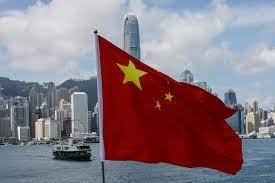$TCEHY $BIDU $SMH
#Tencent #Baidu #Semiconductors #AI #TechWar #USChinaRelations #ChipShortage #TechnologyStocks #SemiconductorStocks #ArtificialIntelligence
In an evolving landscape characterized by stringent U.S. chip restrictions, Chinese technology giants have been compelled to navigate these tumultuous waters with innovative strategies to maintain their competitive edge in the artificial intelligence (AI) arena. Tencent and Baidu, among the leading firms in this struggle, have openly shared their approaches in coping with the hurdles imposed by these limitations. These strategies include the stockpiling of semiconductor chips, the optimization of AI models to become more chip-efficient, and the adoption of domestically produced semiconductors. This tactical pivot not only demonstrates the resilience and adaptability of these firms but also highlights the broader implications for the global technology ecosystem, especially in the high-stakes domain of AI development.
The ramifications of the U.S. chip curbs have been far-reaching, prompting a significant recalibration of operations among Chinese tech giants. By accumulating a strategic reserve of essential semiconductor components, companies like Tencent and Baidu have managed to secure a short to medium-term buffer against supply chain disruptions. This foresight has been crucial in ensuring the continuity of their technological advancements and commercial operations. Further, the refinement of AI models for greater efficiency represents a dual benefit: it mitigates the impact of chip scarcity while concurrently advancing the field of AI through more sophisticated and less resource-intensive algorithms. This optimization effort signifies a shift towards a more sustainable form of tech development that could set new industry benchmarks.
Moreover, the pivot towards the utilization of homegrown semiconductors underscores a momentous stride in China’s quest for technological self-reliance. By integrating domestically manufactured chips into their operations, Tencent and Baidu are not only circumventing current restrictions but are also contributing to the foundational infrastructure of China’s tech future. This move is emblematic of a broader national endeavor to bolster the Chinese semiconductor industry, which has been marked by substantial investments and policy support from Beijing. The success of these initiatives is not merely a matter of corporate survival but a critical aspect of China’s strategic positioning in the global tech landscape.
The ongoing U.S.-China technology rivalry, encapsulated within the context of these chip curbs, has ushered in a new era of innovation and competition. The adaptive strategies employed by Tencent and Baidu illuminate a path forward under the shadow of geopolitical tensions. However, these developments also pose significant questions about the future of global tech cooperation and competition. As nations and corporations alike grapple with the implications of such restrictions, the pursuit of technological advancement and corporate strategy will increasingly intersect with geopolitical considerations. The unfolding scenario underscores the intricate dynamics at play between national security, global competitiveness, and the uncharted potential of AI.











Comments are closed.